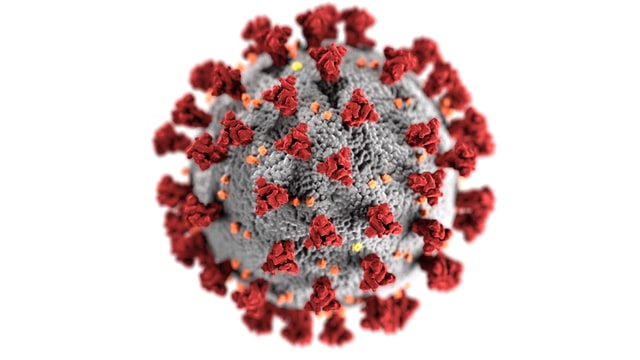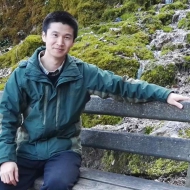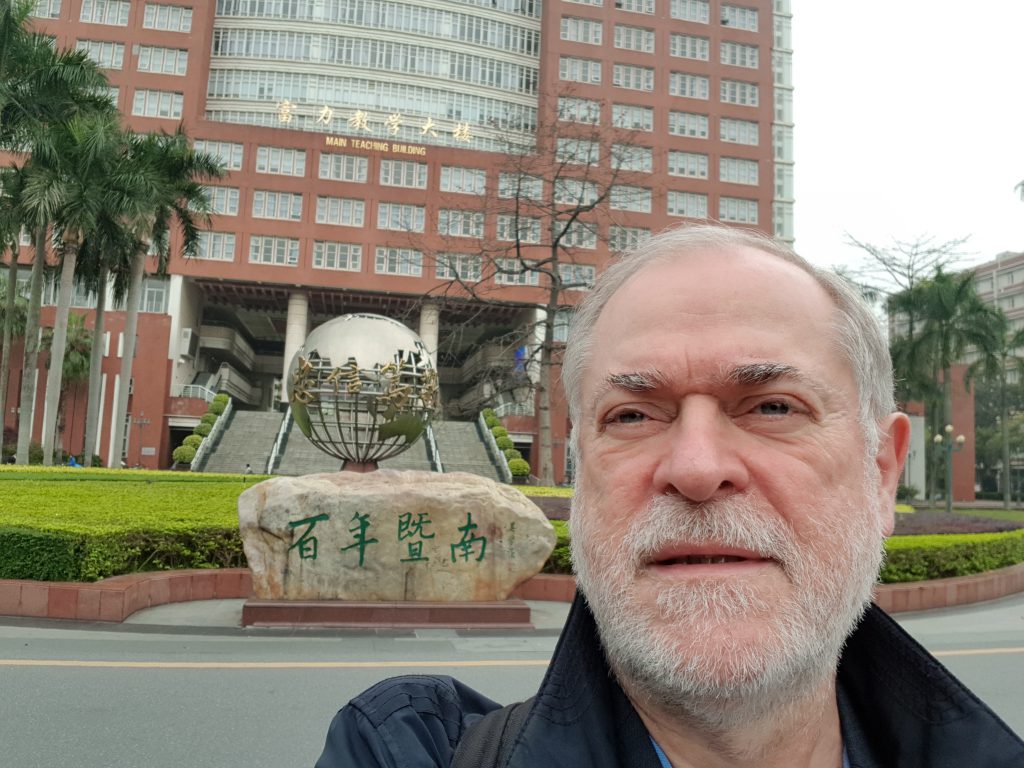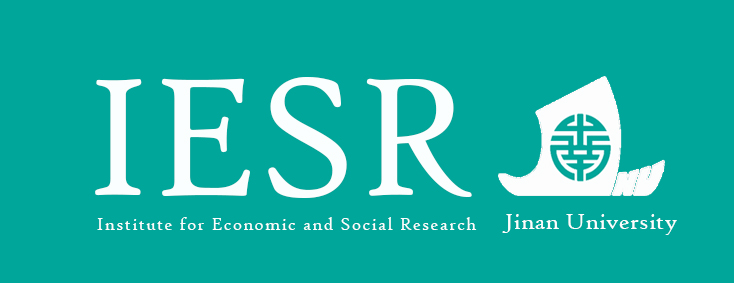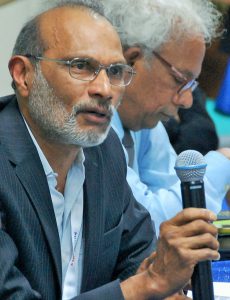The world still struggles about a convincing strategy to handle the #coronavirus crisis. What is the right strategy with social distancing. Were the huge lockdowns in many states necessary? How to move out of the lockdowns? Read the insights of one of the leading experts on epidemics world-wide.
Some core messages of the interview:
- Our research showed that those cities that acted early in the big influenza epidemic of 1918, for long periods of time, and used several non-pharmaceutical interventions saw far lower rates of influenza cases and deaths compared to the cities that failed to take such measures or took them too late.
- I do not believe letting the virus run wild to achieve herd immunity and leaving things wide open, as in Sweden, is a good idea.
- In the fog of war it is always hard to gather good data.
- We are all flying by the seat of our pants and making best guesstimates.
- At least in the US, we are not there yet to terminate the widespread lockdowns.
- I fear that CoVID-19 will be much worse than the influenza epidemic of 1918.
Howard Markel, M.D., Ph.D. is the George E. Wantz, M.D. Distinguished Professor of the History of Medicine and Director of the Center for the History of Medicine at the University of Michigan. He is also Professor of Pediatrics; Psychiatry; Public Health Management and Policy; History; and English Literature and Language.
He is the pre-eminent social and cultural historian of medicine, public health, and epidemics in the world. Author of 11 books and has contributed over 500 articles, reviews, essays and book chapters to a wide range of scholarly publications and popular periodicals. He has made hundreds of contributions for the media and is a prominent policy advisor.
More details about his expertise on epidemics below the interview. Full Bio.
Photo by Leisa Thompson
Interview
GLO: As a medical historian, you are one of the leading experts who have studied the big influenza epidemic of 1918: What can we learn from your research?
Markel H, Lipman HB, Navarro JA, et al. Nonpharmaceutical Interventions Implemented by US Cities During the 1918-1919 Influenza Pandemic. JAMA. 2007;298(6):644–654. doi:10.1001/jama.298.6.644
Howard Markel: In 2007, my colleagues and I at the University of Michigan Center for the History of Medicine and the U.S. Centers for Disease Control and Prevention studied the use of non-pharmaceutical interventions (NPIs) taken in the U.S. during the 1918-1919 influenza pandemic, which killed, at least, 40 million people around the globe and 500,000 to 750,000 Americans. We evaluated the public health efforts of 43 large cities that implemented some combination of commonly used NPIs:
1) isolating the ill or suspected cases in hospitals or at home;
2) banning public gatherings and in some cases, shutting down roads and railways; and
3) closing schools.
What we discovered was quite remarkable. Many cities acted early, meaning they pulled the levers to shut the gates of their city before the virus reached what is called an inflection point and spread widely causing hundreds if not more cases per day. We estimated that rate to be twice the normally expected number of cases of influenza in that city at that time, based on the previous year’s statistics.
Those cities that acted early, for long periods of time, and used more than one NPIs saw far lower rates of influenza cases and deaths compared to the cities that failed to take such measures or took them too late —after the virus had a chance to spread through the community.
GLO: Social distancing as a concept is applied to some extent in most countries, but was the complete lockdown of societies and economies really necessary? Why are e.g. the policies applied in South Korea and Sweden wrong?
Howard Markel: Early action is the key, of course, because these measures do not cure or prevent the spread of a virus. They only buy time, so that hospitals are not overrun with sick people and, perhaps, modern medicine can manufacture effective anti-viral drugs, treatments, or a vaccine. And because these measures are extremely disruptive to society, they should be employed only as a last resort and only for highly lethal and easily transmissible infections. When is meant by the phrase “last resort,” is that all other measures leading up to such socially disruptive NPIs do not seem to work elsewhere and we are dealing with an epidemics that has an especially high case fatality rate (number of deaths divided by total number of cases).
In 1918, the case fatality rate (CFR) was 2.5% (and in some countries such as India, over 10%), which is staggering compared to seasonal flu case fatality rates of about 0.1%. The 1918 pandemic that merited the most draconian of measures and it is important to note, they had no other tools to use, no antibiotics or antivirals, no vaccines, not even IV fluids. Right now, we are estimating relatively high CFR’s for CoVID-19, but are unsure of the precise number because while deaths are easy to quantify, the total number of cases is unclear—especially those with mild cases that do not see their doctor. We need better testing to be sure but given how sick CoVID-19 makes people and the number of deaths we are seeing, I believe it is better to be safe than sorry.
I do not believe letting the virus run wild to achieve herd immunity and leaving things wide open, as in Sweden, is a good idea given how many people with co-morbid diseases are at risk to get very sick and die. In 2020, there are many people living with cancer, AIDS, heart disease and other serious illnesses who would never be alive in 1918. These people are at serious risk of dying of CoVID-19 herd immunity, meaning 90% or more of a community is immune to a virus to prevent further spread of an epidemic disease, is best achieved by universal vaccination.
And a huge problem with CoVID-19 is that we have never experienced an epidemic with this particular virus and we do not yet have a stable case fatality rate to make good judgments. Hence, the policies we do develop are likely to be influenced by the adage, better safe than sorry. As such, we should not grouse about calls made “too early,” in the cause of fighting what may be a deadly epidemic.
GLO: Now we are in the middle of the fog, and it is difficult to know when to move back to some normal. Why are the statistics we have to rely on world-wide of so low quality?
Howard Markel: Precisely because we are in the fog of war and it is always hard to gather good data on the epidemic disease in question.
GLO: How long does it take to see the effects of public measures in the statistics?
Howard Markel: We should have better data in the coming weeks, late in the epidemic curve of each city, state or province, and country. But we are all flying by the seat of our pants and making best guesstimates based on a great deal of epidemiological data, modeling data and clinical information.
GLO: What could be the statistical indicator to decide on the termination of the widespread lockdowns?
Howard Markel: That’s the million dollar question. We don’t have a precise time to do this even though we know it needs to be late in the epidemic curve, not when cases are doubling every day, but instead are only popping up on a much more slow basis. We also need far more test kits to be able to contact trace the new cases and implement quarantine and isolation procedures for them. Simply put, at least in the US, we’re not there yet.
GLO: Why is New York the center of the epidemic in the US?
Howard Markel: Well, it’s the largest city in the world; it was late to implement social distancing measures, compared to other American cities and states; people live in crowded conditions—especially the poor—and then there is the mass transit system where people travel cheek by jowl on subways. These are just a few speculations but it has been sad to see how seriously my beloved New York City has been affected.
GLO: Moving outside of your territory as a historian, what do you speculate: Will we consider in some decades the coronavirus comparable to the influenza epidemic of 1918?
Howard Markel: To be honest, I fear it will be much worse. Let me put it this way, it will certainly keep historians of epidemics busy for many, many years!
GLO: Thank you very much for these insights!
*************
With Howard Markel spoke Klaus F. Zimmermann, GLO President on April 18, 2020. Both have been Rockefeller Foundation Bellagio Fellows in 2017.
Further activities and reports of the GLO Research Cluster on the coronavirus.
Review of epidemics-related work of Howard Markel
Dr. Markel is the author, co-author, or co-editor of eleven books including the award-winning Quarantine! East European Jewish Immigrants and the New York City Epidemics of 1892 (Johns Hopkins University Press, 1997; paperback, Johns Hopkins University Press, 1999) and When Germs Travel: Six Major Epidemics That Have Invaded America Since 1900 and the Fears They Have Unleashed (Pantheon Books/Alfred A. Knopf, 2004; paperback Vintage/Random House, 2005).
From 2005 to 2006, Professor Markel served as a historical consultant on pandemic influenza preparedness planning for the United States Department of Defense. From 2006 to 2015, he served as the principal historical consultant on pandemic preparedness for the Division of Global Migration and Quarantine of the U.S. Centers for Disease Control and Prevention. From late April 2009 to February 2011, he served as a member of the CDC Director’s “Novel A/H1N1 Influenza Team B”, a real-time think tank of experts charged with evaluating the federal government’s and President Barack Obama’s influenza policies on a daily basis during and after the outbreak. His historical research has played a pivotal role in developing the evidence base for many community mitigation strategies employed by the World Health Organization, the CDC, the Mexican Ministry of Health, and numerous state, provincial and municipal health departments around the globe during the 2009 influenza pandemic.
In collaboration with colleagues at the University of Michigan and the U.S. Centers for Disease Control and Prevention, Dr. Markel is Co-Editor-in-Chief of The 1918-1919 American Influenza Pandemic: A Digital Encyclopedia and Archive, which was first published in 2012 by the University of Michigan Center for the History of Medicine and the University of Michigan Scholarly Publications Office. Funded by grants and contracts from the CDC, the Robert Wood Johnson Foundation, and the National Endowment for the Humanities, the digital encyclopedia represents one of the largest collections of historical documents ever assembled on a single epidemic and is accessible on the Internet at: www.influenzaarchive.org. The second edition of the 1918-1919 Influenza Pandemic: A Digital Encyclopedia and Archive 2.0 was released in 2016 and a third edition is now in preparation.
During the Ebola epidemic of 2014, he was a much sought-after expert on the history of epidemics and quarantines. Aside from wide press coverage, in the form of interviews, and his contributing several influential op-eds for the New Republic and Reuters Opinion, Professor Markel was the lead interview on NPR’s All Things Considered, BBC World Service, CNN/Sanjay Gupta MD, and PBS NewsHour. Dr. Markel’s landmark scholarship on the tangled history of stigma, politics and contagion was also lauded on the front page of The New Yorker, (Talk of the Town/Comment, November 10, 2014). In the aftermath of the Ebola crisis, in February of 2015, the Presidential (Barack Obama) Commission on Bioethical Issues invited him to consult on the ethical issues surrounding the stigma of epidemic and infectious diseases.
More recently, Dr. Markel played a prominent role in evaluating public health and social distancing policies as they played out in China and around the world during the CoVID-19, or coronavirus, epidemic of 2019-2020. His pioneering 2007-2009 research on the use of community mitigation strategies for influence pandemics was the driving and life-saving force behind the entire global policy to CoVID-19.
On March 11, 2020, Nicholas Kristof, the eminent columnist for the New York Times cited Dr. Markel and his research team’s work as one of the “12 Steps to Tackle the Coronavirus.” On April 1, 2020, he was the subject of a New Yorker magazine profile, “A Medical Historian on Why We Must Stay the Course in Fighting the Coronavirus.” At the National Academy of Medicine CoVid-19 briefing on March 25, 2020, he was “widely credited with coining the term flattening the curve.” On April 6, 2020, Google honored the concept of “flattening the curve,” which he helped coin and scientifically demonstrate, by making it the first in a series of @GoogleDoodles for CoVid-19, on its masthead, dedicated “to public health workers and to researchers in the scientific community” during the crisis. On April 16, in response to those wanting a lifting of the state’s CoVid-19 lockdown, Governor Gretchen Whitmer cited Dr. Markel’s non-pharmaceutical intervention research as the evidence base for her social distancing policies for the State of Michigan.
Markel’s two prominently run “Op-Ed” essays on the Chinese quarantine and containment strategies in Wuhan ran back-to-back in the Washington Post (January 26, 2020) and the New York Times (January 27, 2020) and were translated into multiple languages overseas, for the Chinese, Spanish, Portuguese, Russian, and Polish press. He discussed the impact of modern technology and connectivity on pandemics in an opinion essay for WIRED on March 4, 2020. A highly influential Op-Ed essay on the importance of early school closures as a community mitigation strategy for CoVid-19 appeared online in the New York Times on March 6, 2020 and in print on March 9, 2020. Within a few days of its publication, school districts across the nation shut their doors. He also wrote important op-eds on the use of face masks, for NBC Think (April 3, 2020) and lessons from the 1918 influenza pandemic for The Washington Post (April 8, 2020). Professor Markel was also extensively interviewed about CoVID-19 for hundreds of stories and updates.
Research also of interest in this context:
J Alexander Navarro, Katrin Kohl, Martin Cetron & Howard Markel
A Tale of Many Cities: A Contemporary Historical Study of the Implementation of School Closures during the 2009 pA(H1N1) Influenza Pandemic
Journal of Health Politics, Policy and Law, Vol. 41, No. 3, June 2016, 393-421.
DOI 10.1215/03616878-3523958
Brian M. Davis, Howard Markel, Alex Navarro, Eden Wells, Arnold S. Monto & Allison E. Aiello
The Effect of Reactive School Closure on Community Influenza-Like Illness Counts in the State of Michigan During the 2009 H1N1 Pandemic
Clinical Infectious Diseases, Vol. 60, Issue 12, 15 June 2015, Pages e90–e97. DOI.org/10.1093/cid/civ182
Ends;


